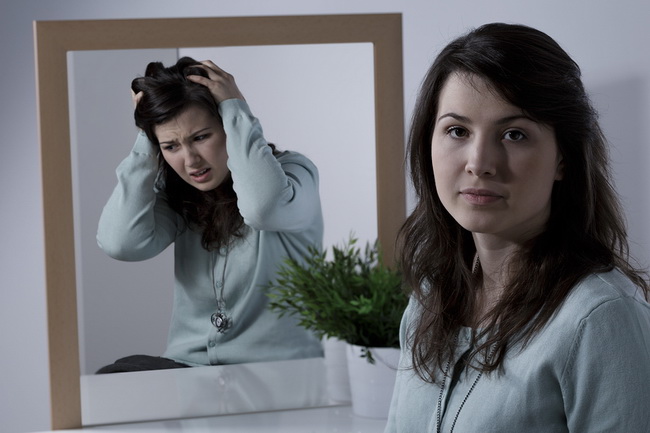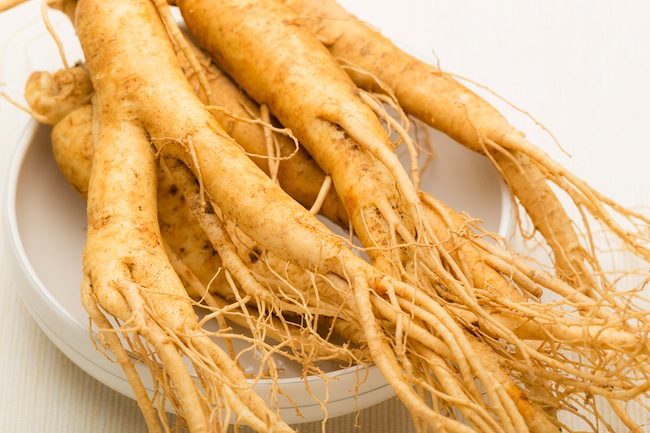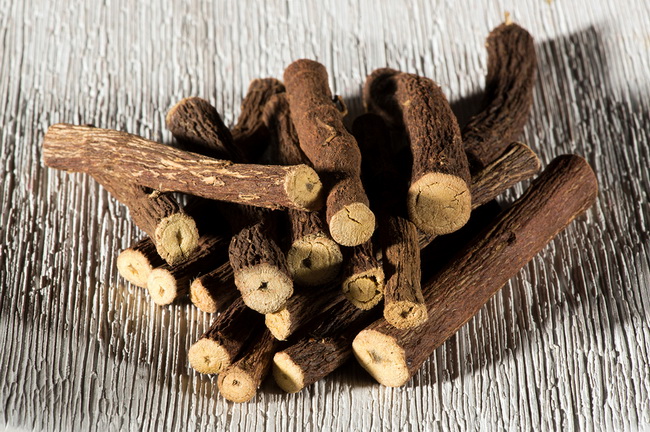- Make It Yourself Lavender Heart-Shaped Bath Bombs!
- 20 Things You Never Knew About “Down There”
- 12 Best Foods For Those Suffering From Arthritis Pain
- 12 Personal Hygiene Mistakes Almost Everyone Makes (Mom Never Told You About #4!)
- 15 Medicinal Plants And Herbs From The Cherokee People
- 12 Mind-Blowing Benefits Of Drinking Coconut Water During Pregnancy
- 12 Outstanding Winter Foods That Won’t Fatten You Up Like A Christmas Turkey
15 Natural Herbs for Those with Bipolar Disorder

Photo credit: bigstock.com
If you or someone you love suffers from bipolar disorder (manic depression), then you know what a difficult disease this is. It varies from person to person, with some having what is considered to be mild episodes, while other experience frequent and life threatening episodes.
If you are looking for alternatives to the typical fare of prescription medications, you will find that for this particular disorder, they are few and far between. Many herbs have been used throughout the ages to treat this problem, but there has been almost no scientific research done in this area. Herbalists will tell you that the most useful herbs are the ones called nervines, and we are listing them here, among a few other natural compounds that many of those affected have stated has helped them personally.
Of all the herbs on the planet, nervines are among the strongest, so they are the most likely to cause side effects or interactions with other medications. Natural does not mean completely harmless. If it is strong enough to heal you, then it is strong enough to harm you if not taken properly or with forethought. If you are taking any prescription medications, or if you are pregnant, nursing, or plan to become pregnant, you should always consult with your doctor before consuming any herbs, especially nervines. Never stop your medication until you have spoken with your physician. Bring a list of the herbs you would like to try and discuss your personal situation and health problems with your doctor before you try them.
The best 15 natural herbs and other natural means of helping those with bipolar disorder are:
1. Black Cohosh
Sometimes called Black Snakeroot. This is a sedative and nervous system depressant and is often used by those with autoimmune diseases due to its anti-inflammatory effects. Black Cohosh has been used by Native American tribes for generations for many mood disorders. It appears to bind itself to estrogen receptors, so it might cause hormonal activity.
2. Passion Flower
This herb has a soothing effect to the nerves, which can help to provide the proper balance of neurotransmitters in the brain. It must be taken daily, however, to obtain the necessary relief you are seeking. Passion flower can also reduce insomnia due to agitation and it is said to provide relief from those feelings of excitement that come during the manic stage of this disease.
3. Damiana
This is a traditional herbal remedy for depression. It’s also thought to have aphrodisiac capabilities. Whichever is true, there does appear to be some type of effect on the hormonal system. It can leave you feeling energized, so it’s important that you consume this when you are on the “down” side of your cycle.
4. Magnesium
Not an herb, but this vital mineral works in much the same way lithium does, but with no health risks. Magnesium is a natural mood balancer and it can help to reduce the symptoms of mania. Magnesium also encourages restful sleep. Many people find that their insomnia and feelings of anxiety disappear when they take magnesium supplements. Although it is difficult for the body to absorb magnesium supplements, they are the easiest to find. Consider adding more magnesium rich foods in your diet as well, including cashews, black beans, Swiss chard, sunflower seeds, pumpkin seeds, and spinach. You can also soak in a bath with 2 cups of Epsom salts at least 5 nights a week or make your own magnesium lotion and use that daily. Find out warning signs of magnesium deficiency.
5. Gingko Biloba
Although this herb is advertised as being able to boost your memory power, this extract from the gingko tree is a powerful antioxidant which is prescribed in Germany for the treatment of dementia. Gingko improves the blood flow to the brain, so it might help those who suffer from bipolar disorder.
Continue to Page 2

Photo credit: bigstock.com
6. Valerian Root
Valerian root has long been known for its powerful sedative compounds, which help to calm the nervous system. It is often used as an alternative medication for those suffering from insomnia, feelings of anxiety, and mood disorders. Valerian encourages feelings of calmness, reduces nervous tension, stress, restlessness, feelings of anxiety, and regulates mild to moderate mood swings. You can consume this popular herb through a supplement, tea, or herbal extract. Take as directed.
7. Ginseng
Panax ginseng has an energizing effect which can help those in the depressive state of bipolar disorder, especially when accompanied by feelings of extreme lethargy or fatigue.
8. Ashwagandha
This herb works as a nervine tonic that can help to improve the symptoms of bipolar disorder. The University of Pittsburgh found in a 2013 study that an active ingredient in ashwagandha was able to improve 3 separate cognitive functions for those suffering from this disease. It helps with auditory-verbal working memory, social cognition, and reaction time. Standard dosing is 500 mg of Ashwagandha root and leaves. This should be taken daily for several weeks.
9. Grapeseed Oil and Pycnogenol
Pycnogenol is a supplement that is derived from marine pine trees. Both grapeseed oil and pycnogenol are super powerful antioxidants which are important for those with bipolar disorder. Be sure that you speak to your doctor about the dose that might work for you.
10. Brahmi
Sometimes called bacopa, this herb is also helpful for those with bipolar disorder because it works as both a mild stimulant as well as a mild sedative at the same time, which will help to stabilize moods. Brahmi also relieves mental strain and improves the memory. You can take this herb in a supplement form, or drink a few teaspoons of the juice that has been extracted from brahmi leaves daily.
Continue to Page 3

Photo credit: bigstock.com
11. Gotu Kola
This is an herbal stimulant that is used in Ayurvedic medicine and is recommended for those with depression and anxiety. This herb is readily available in most health food stores. Take as directed on the package. Read more how gotu kola can help improve your memory.
12. Fish Oil
Believe it or not, fish oil can help in the treatment of bipolar disorder. Its omega-3 fatty acids, eicosapentaenoic acid (EPA) and docosahexanoic acid (DHA) are vital for the proper production of hormones and overall nerve function. Fish oil, or krill oil, helps to overcome feelings of depression as well as improve brain function. For proper dosage, always consult your physician. You can also add plenty of herring, tuna, salmon, trout, and mackerel to your diet as all of these fish are rich in omega-3 fatty acids.
13. Licorice Root
Known to boost hormone production, licorice can help improve the hormones in both the digestive tract and the brain. Proper hormone production and balance of hormones is vital for mood stabilization.
14. St. John’s Wort
This herb has become super popular for the treatment of depression over the last two decades. It does have research to back up its claims as being an herbal antidepressant. This is available by prescription only in Germany since it can make you more sensitive to sunlight. It can be very dangerous to use St. John’s Wort in combination with certain prescription antidepressants or any other type of medication that affects serotonin levels. Always consult your doctor before consuming as this herb can interact with other medications.
SEE ALSO: Best Essential Oils for Help with Bipolar Disorder
15. Sarsaparilla
This herb works similarly to licorice root as it appears to affect hormone production; Sarsaparilla also calms the stomach, as well as the nerves, and is a well-known mild sedative.
Although most herbal remedies are completely safe, we again want to caution you to see your doctor before consuming any herbal remedy, no matter how safe it is considered to be. Many herbs interact badly with other medications and this can lead to a worsening of symptoms or even serious side effects. Please consult a qualified doctor, herbalist, or naturopath before stopping your medication or before consuming any herbs.
References:
































